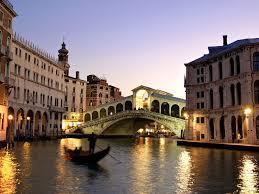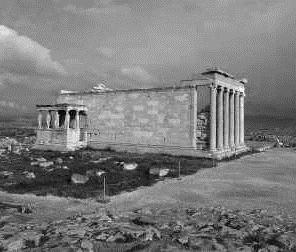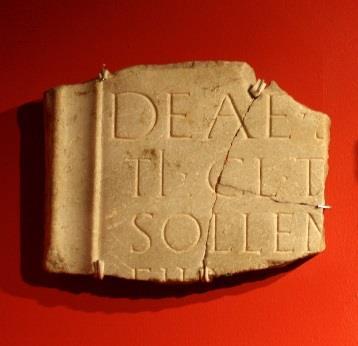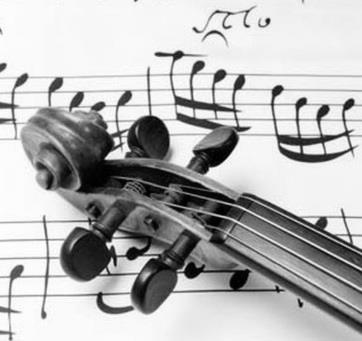
8 minute read
Group 2 Language
There are different levels of language within the IB. You must select your language(s) from this group appropriate to your current language levels as well as inclinations.
Language B HL – French, German, Spanish, Latin, Classical Greek
This course is for strong linguists: you will probably have gained a top grade at GCSE or its equivalent. This is certainly the level to take if thinking about continuing with language study at university.
Language B SL – French, German, Spanish, Latin, Classical Greek
This course would suit students who are good at languages but who know that they will probably not wish to continue with the subject at university level.
Language ab initio SL – Italian, Spanish
This course is for beginners, students with no previous experience of learning the language.
This would suit either students who have not enjoyed great success with their existing language study or students who are keen to explore new linguistic experiences.
Latin B, Classical Greek B
These courses are for students who have gained a good grade at GCSE or its equivalent. The HL course would suit students with a strong prior attainment: this is certainly the level to take if considering the study of classical languages at university. The SL course would suit students who, while skilled in and enthusiastic for classical studies, know that they will probably not wish to continue with the subject at university level.
Modern Languages
IB FRENCH, GERMAN and SPANISH SL and HL


Head of Languages Department – Mr Ed Milner ejm@oakham.rutland.sch.uk
Prerequisites A good grade of A (or 7) or above at IGCSE is highly recommended. For Higher Level, the difficulty is similar to A-Level. Standard Level is significantly more accessible and would be appropriate to those who were solid IGCSE linguists.
Extra-Curricular Opportunities
Possible Career Pathways
It is highly recommended to visit a country which speaks the language which you study during the Upper School. Work Experience Trips are offered in form 7. Also various day project opportunities in Business and International Journalism Commonly Law, Accountancy, International Relations, International Business, Marketing, Journalism. Anything which can be done with English or History degrees.
DIFFERENCE BETWEEN GCSE and IB: The Language remains the Language. There is a step up in difficulty, but this is bridged in the early stages of the course. The big difference from the IGCSE exam is that candidates learn to write in a range of styles, rather than just traditional essays. This is taught throughout the course from the very beginning. Literature is examined at Higher Level only, in the oral exam. ORGANISATION OF WORK: HL is typically taught by 2 teachers, split by topic, SL by 1.
Higher Level Topic Covered
Writing - One essay (450-600 words) from a choice of 3. Topics covered include Health, Leisure, Customs and Traditions, Technology, Law and Order, Globalisation etc
Listening and Reading Comprehension - Comprehension exercises on 3 audio passages and 3 written texts drawn from the five topic themes.
Assessment Method % of grade
Paper 1 25%
Paper 2 50%
Standard Level
Speaking - Individual Oral Assessment. A discussion of a literary passage from a work previously studied in class followed by discussion of one or more topic themes from the syllabus Oral Exam 25%
Writing - One essay (250-400 words) from a choice of 3. Topics covered include Health, Leisure, Customs and Traditions, Technology, Law and Order, Globalisation etc
Listening and Reading Comprehension - Comprehension exercises on 3 audio passages and 3 written texts drawn from the five topic themes
Speaking - Individual Oral Assessment. A discussion of a visual stimulus followed by discussion of one or more topic themes from the syllabus Paper 1 25%
Paper 2 50%
Oral Exam 25%


IB ITALIAN ab initio (beginners)
Prerequisites
Extra-Curricular Opportunities
A desire to study a language from scratch. Having studied another language in Middle School is an advantage though not essential.
Trip to Venice and/or Urbania (Forms 6 and 7). Film and pizza evening, guest speakers
Possible Career Pathways
The sky is the limit. Commonly Law, Accountancy, International Relations, International Business, Marketing, Journalism.
DIFFERENCE BETWEEN GCSE and IB: The course is exciting as it provides the opportunity to study a language from scratch. The course is accelerated. As an Upper School learner you will have the opportunity to reach a high level of proficiency in 2 years – beyond GCSE.
The topics covered are: Identities; Experiences; Human ingenuity; Social organization; Sharing the planet. Each topic provides you with opportunities to practise and explore the language as well as to develop intercultural understanding, receptive, productive and interactive skills. When you finish the course you will be able to use Italian in real life situations.
ORGANISATION OF WORK: Two teachers, split evenly by topic, supported by conversation class with native speaker to develop spoken skills.
Standard Level Topic Covered Assessment Method % of grade
Paper 1 A one-hour writing paper. Two written tasks of 70-150 words. Written 25%
Paper 2 Listening comprehension and reading comprehension: Comprehension exercises on three audio passages and three written texts, drawn from all five themes. Written and listening. 50%
Internal assessment A conversation with the teacher, based on a visual stimulus and at least one additional course theme.
Oral (internally assessed by teacher –externally moderated).
25%

IB SPANISH ab initio (beginners)
Prerequisites
Extra-Curricular Opportunities
A desire to study a language from scratch. Having studied another language in Middle School is an advantage though not essential.
6th form trip to Madrid, 7th form work experience trip to Granada. Termly film and pizza evenings, Business Language Champions Experience Days
Possible Career Pathways
The sky is the limit. Commonly Law, Accountancy, International Relations, International Business, Marketing, Journalism.
DIFFERENCE BETWEEN GCSE and IB: The course is exciting as it provides the opportunity to study a language from scratch. The course is accelerated. As an Upper School learner you will have the opportunity to reach a high level of proficiency in 2 years – beyond GCSE.
The topics covered are: Identities; Experiences; Human ingenuity; Social organization; Sharing the planet. Each topic provides you with opportunities to practise and explore the language as well as to develop intercultural understanding, receptive, productive and interactive skills. When you finish the course you will be able to use Italian in real life situations.
ORGANISATION OF WORK: Two teachers, split evenly by topic, supported by conversation class with native speaker to develop spoken skills.
Standard Level Topic Covered Assessment Method % of grade
Paper 1 A one-hour writing paper. Two written tasks of 70-150 words. Written 25%
Paper 2 Listening comprehension and reading comprehension: Comprehension exercises on three audio passages and three written texts, drawn from all five themes Written and listening. 50%
Internal assessment A conversation with the teacher, based on a visual stimulus and at least one additional course theme.
Oral (internally assessed by teacher –externally moderated).
25%
IB CLASSICAL GREEK

Prerequisites
GCSE Classical Greek Grade 6
Extra-Curricular Opportunities
Opportunities will include a trip to the British Library and Classical plays including the Greek play at Cambridge or Oxford.
Possible Career Pathways
Law, Foreign Office, GCHQ, Civil Service and the City. As an A-level, it combines well with English, History, Philosophy, Languages and Maths.
DIFFERENCE BETWEEN GCSE and IB Higher Level/Standard Level: The advantage of it being a demanding GCSE is that there is very little step-up in difficulty from GCSE, as the grammar is already covered, and the pace considerably less frantic than Gratin. There are longer passages to cover in literature but the technique is essentially the same as at GCSE.
ORGANISATION OF WORK: Teaching will be split between two/three teachers to correspond to the differing module content.
Higher Level Topic Covered
Language Translation of unseen Greek Set vocabulary list and use of dictionary in exam.
Literature Study of two authors, Homer and Herodotus.
Research Dossier
Standard Level
A collection of primary sources researched and annotated, based on a field trip e.g. to the British or Fitzwilliam Museum. IA 20%
Language Translation of unseen Greek Set vocabulary list and use of dictionary in exam.
Literature Study of two authors, Homer and Herodotus.
Research Dossier
A collection of primary sources researched and annotated, based on a field trip e.g. to the British or Fitzwilliam Museum. IA 20%
Assessment Method % of grade
Paper 1 35%
Paper 2 45%
Paper 1 35%
Paper 2 45%
IB LATIN

Prerequisites GCSE Latin Grade 6.
Extra-Curricular Opportunities
Possible Career Pathways
Opportunities will include a trip to the British Library and Classical plays.
Law, Foreign Office, GCHQ, Civil Service and the City. As an A-level, it combines well with English, History, Philosophy, Languages and Maths.
DIFFERENCE BETWEEN GCSE and IB: The advantage of it being a demanding GCSE is that there is very little step-up in difficulty from GCSE, as the grammar is already covered. There are longer passages to cover in literature but the technique is essentially the same as at GCSE.
ORGANISATION OF WORK: Teaching will be split between two/three teachers to correspond to the differing module content.
Higher Level Topic Covered Assessment Method % of grade
Language Translation of unseen Latin Set vocabulary list and use of dictionary in exam. Paper 1 35%
Literature Study of three authors, Caesar and Livy (prose) and Virgil (verse). Paper 2 45%
Research Dossier
A collection of primary sources researched and annotated, based on a field trip to e.g. Hadrian’s Wall, Bath, Rome. IA 20%
Standard Level
Language Translation of unseen Latin. Set vocabulary list and use of dictionary in exam. Paper 1 35%
Literature Study of two authors, Caesar (prose) and Virgil (verse). Paper 2 45%
Research Dossier
A collection of primary sources researched and annotated, based on a field trip to e.g. Hadrian’s Wall, Bath, Rome. IA 20%








